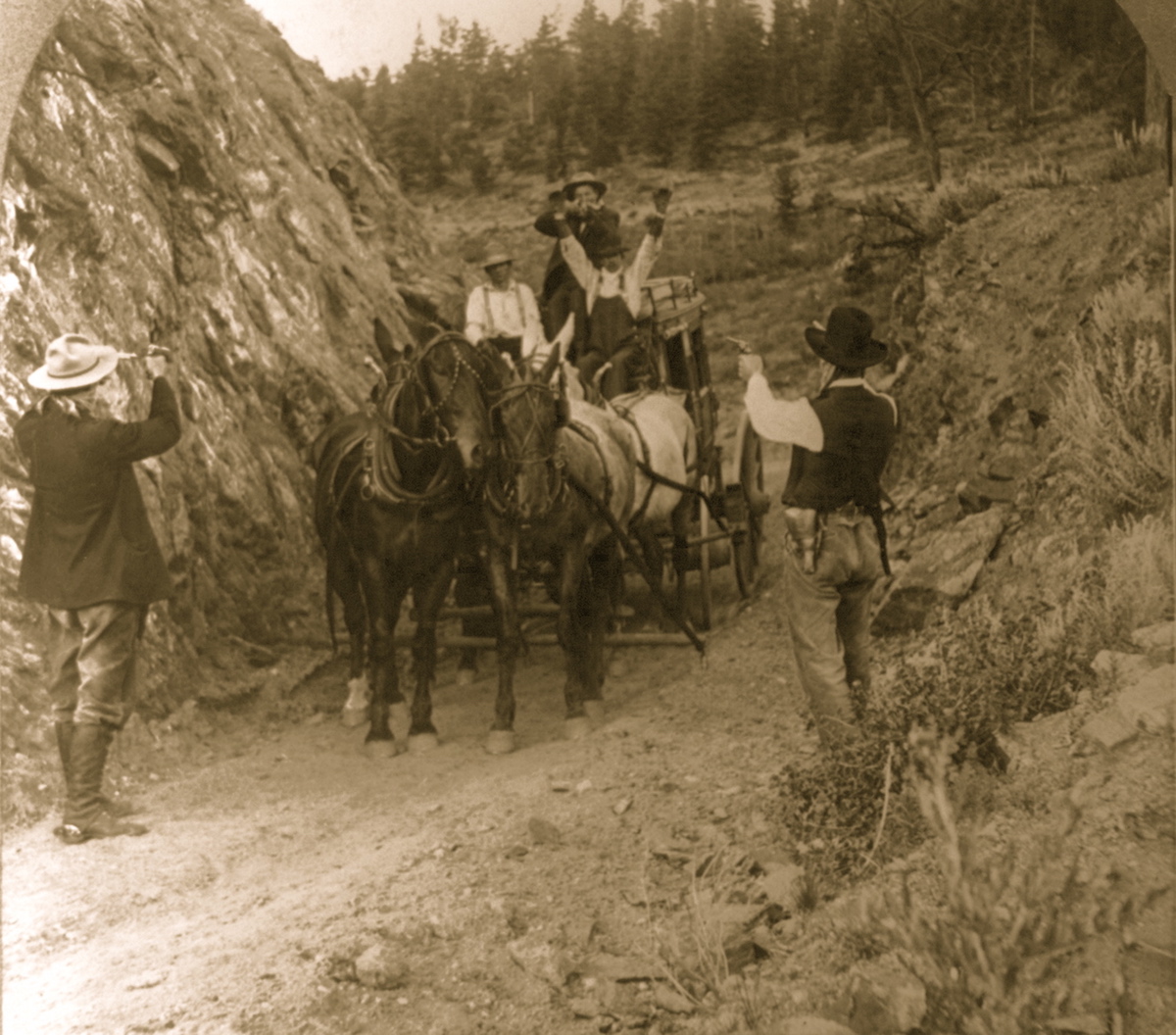
This piece is part of an ongoing series on the unsung women of history. Read more here.
Imagine an olden-timey stagecoach robbery complete with pounding horses’ hooves, masked assailants and a box of loot. Now imagine the bandits carrying out the daring crime. Do you envision a woman among them? Probably not—but it turns out that at least one of history’s most infamous stagecoach robbers was a 28-year-old woman.
On May 30, 1899, a woman cut her hair, dressed in men’s clothing and held up a stagecoach in Cage Springs Canyon, Ariz. Her name was Pearl Hart, and she was no stranger to a life of crime.
Hart, who was born to an affluent family in Canada around 1871, had long associated with gamblers, pimps and drug dealers—perhaps as a way of rebelling against the boarding school her parents shipped her off to as a teen. Her relationship with her first husband was volatile, and she followed him from Canada to Chicago, where he worked as a carnival barker and she attended the legendary Chicago World’s Fair.
There, she became fascinated by one of the fair’s most piquant attractions: Buffalo Bill’s Wild West Show. Though the rough-and-tumble Wild West was still in full effect in real life, Buffalo Bill Cody used the fair to promote his glamorized version of pioneer life. Hart, who later told a reporter she was “good-looking, desperate, discouraged, and ready for anything that might come,” was enthralled—so enthralled that she ran away with a piano player on a train headed West.
The next phase of Hart’s life is murky to historians. Conflicting reports say she spent her time as a cook, a performer or a prostitute, or possibly reunited with her husband. In either case, by 1899 she was cash-strapped and desperate. She joined forces with a man named Joe Boot, a down-on-his luck miner. The drifter and the desperate woman hatched a plan to rob a stagecoach en route to Florence, Ariz.
It didn’t go too well. Though Hart was able to get the money—about $425, minus a dollar she gave to each passenger so they could afford lunch when they reached their destination—she wasn’t great at the getaway part. After leaving the coach, the driver seems to have simply gone ahead on one of the horses to seek the sheriff. On the run (or simply lost), Hart and Boot escaped temporarily, but were apprehended while sleeping.
The very concept of a female stagecoach robber was enough to send Florence, Ariz.—and the national press—into a frenzy. Hart wasn’t a successful robber, but she turned out to be an ingenious self promoter. In her captivity, she found the opportunity to highlight her situation and burnish her own fame.
Hart was assailed by photographers and reporters, gave autographs, and was given gifts by admiring fans who called her “the Bandit Queen.” She didn’t give up, though; while awaiting trial she broke out of her lath and plaster prison cell and escaped briefly. She was caught, but her daring deed earned her even more attention.
Get your history fix in one place: sign up for the weekly TIME History newsletter
The trial that followed was nothing short of a media sensation. Hart could—and did—play the demure victim when necessary. She told the jury that she desperately needed the cash to help her sick mother. She also complained about her inability to vote, declaring that “I shall not consent to be tried under a law in which my sex had no voice in making.”
The jury bought it and acquitted both bandits. But the outraged prosecutors who had brought the case immediately had her and Boot re-arrested, this time for tampering with U.S. Mail. This time, they were incarcerated in federal prison and found guilty.
Perhaps in deference to her sex, Hart was only given a five-year sentence. Boot, on the other hand, was condemned to 30 years. (He escaped and disappeared after just one year.)
Hart’s stay in federal prison in Yuma was just as eventful as her short stay in Florence. She was given her own special cell, allowed to give interviews, and allowed visitors. This led to a new form of escape. After serving just 18 months, she was set free after claiming to be pregnant. (No child materialized after her release, which calls that claim into question.)
“Quite a large number of people were at the depot to get a glimpse of Arizona’s famous female ex-bandit,” wrote a paper of her release, “and they were not disappointed…if there is one thing more than another that Pearl is not shy on, it is a fondness for notoriety.”
Hart lived up to that reputation. Not content to move on, she briefly joined the very show that had given her an itch to go west—then faded into the shadows of history.
Some claim that she married a man named Cal Bywater, changed her name and lived quietly into her 80s—an honest woman at last. Either way, during her brief criminal career she broke a barrier the Wild West didn’t realize could be challenged, proving that when it comes to grit and gun-slinging savvy, a woman could be just as dangerous as a man.
More Must-Reads from TIME
- Cybersecurity Experts Are Sounding the Alarm on DOGE
- Meet the 2025 Women of the Year
- The Harsh Truth About Disability Inclusion
- Why Do More Young Adults Have Cancer?
- Colman Domingo Leads With Radical Love
- How to Get Better at Doing Things Alone
- Michelle Zauner Stares Down the Darkness
Contact us at letters@time.com